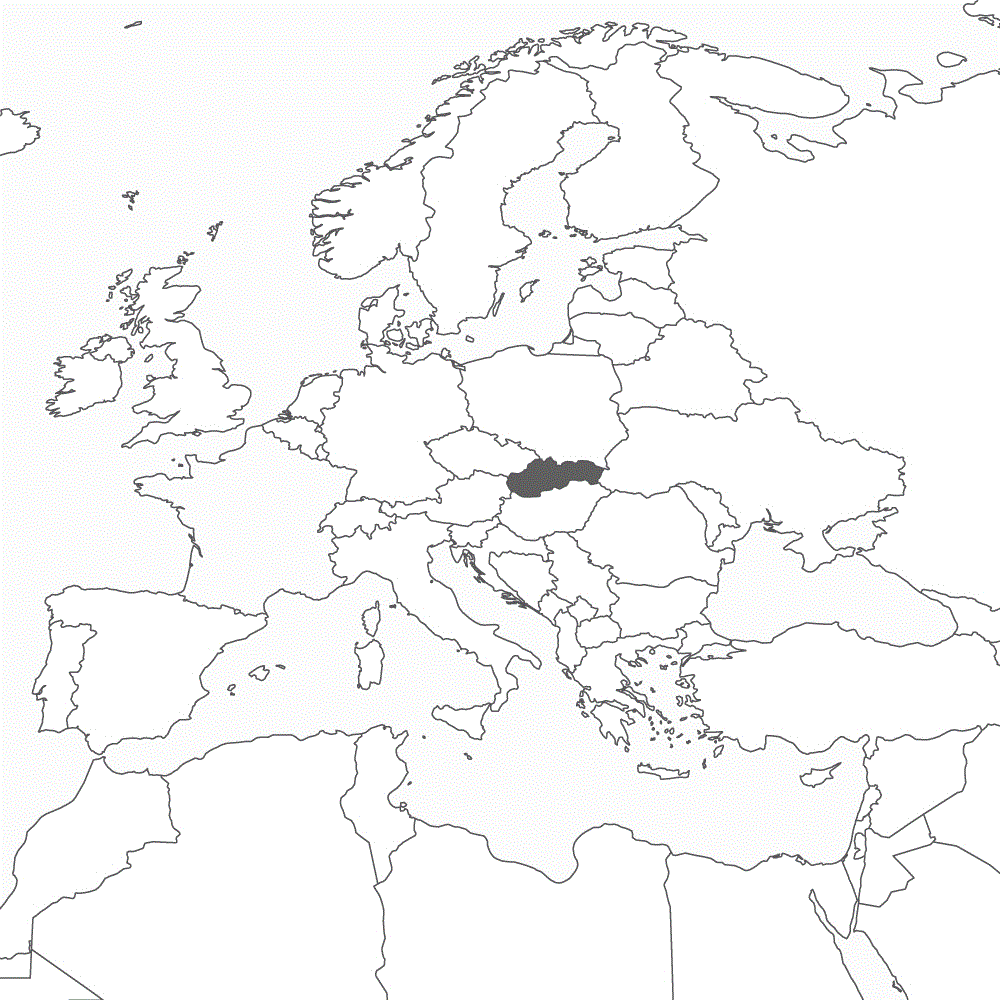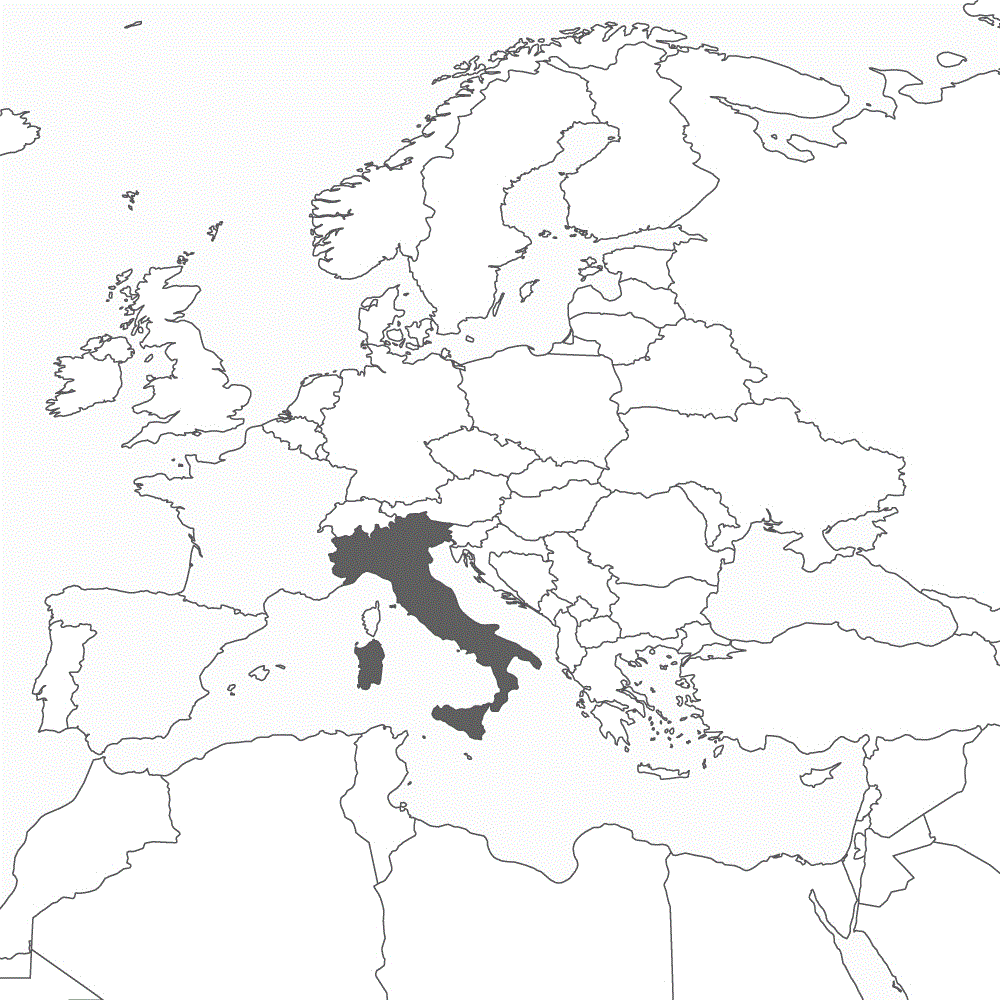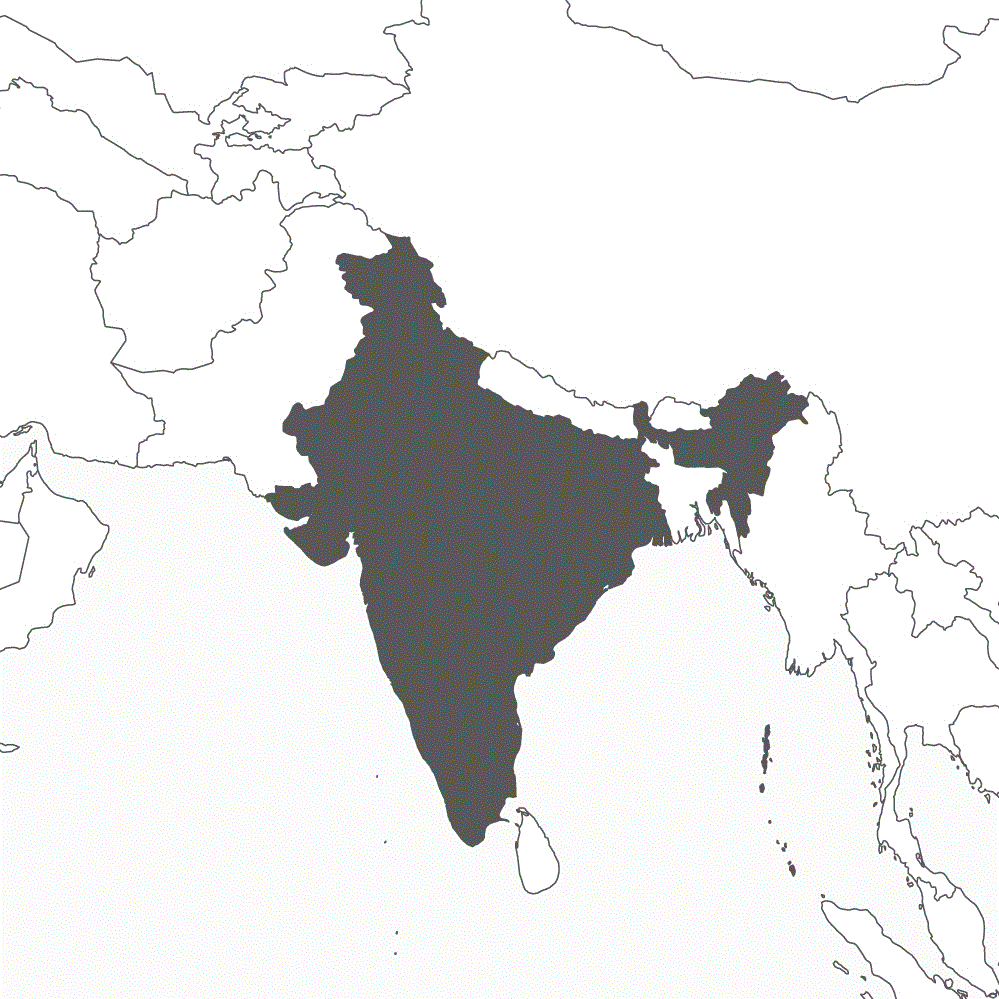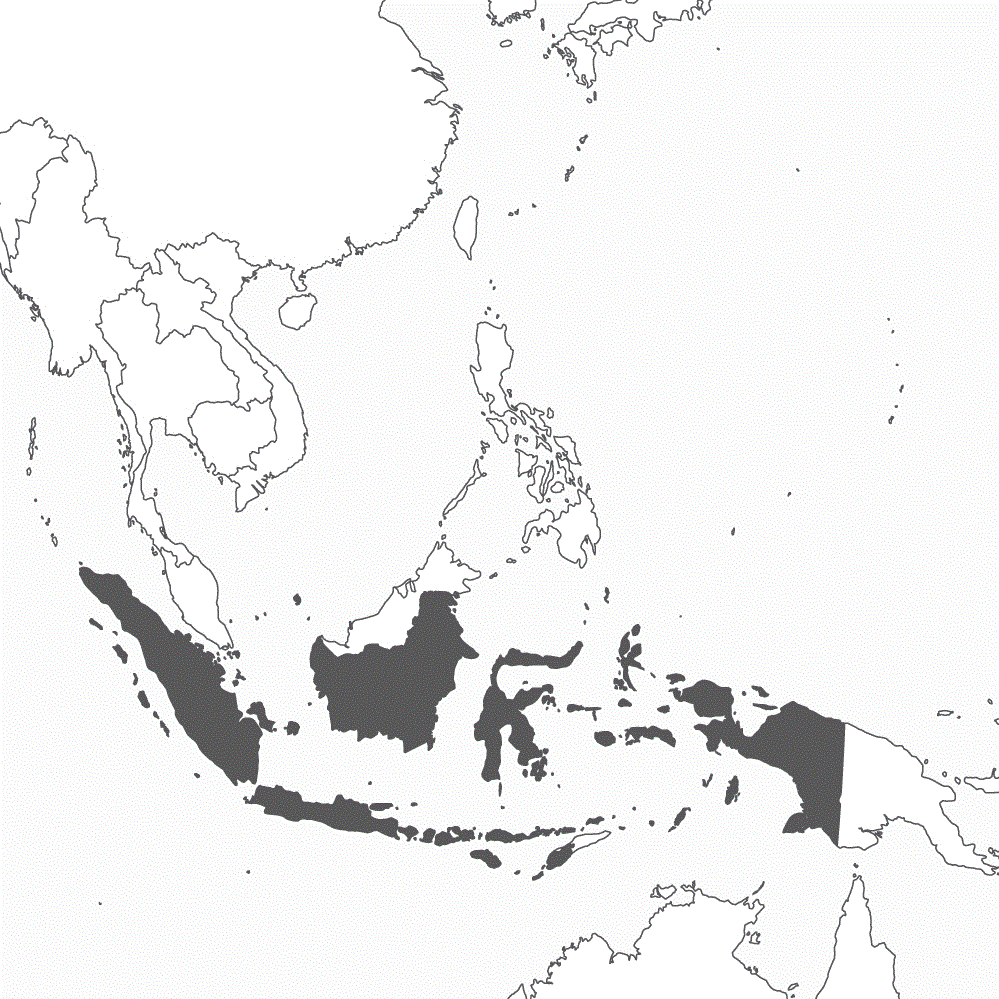The Second Comeback of the “Populist”
In Slovakia, Berlin could lose an ally in the Ukraine war: Electoral favorite, Robert Fico, wants to end arms supplies to Kiev, rejects sanctions against Russia and wants to cooperate more closely with China.
BRATISLAVA/BERLIN (Own report) – With tomorrow’s, Saturday’s parliamentary elections in Slovakia, the German government could lose an important ally in the Ukraine war. Prime Minister Robert Fico’s SMER party is the frontrunner in the polls and has good chances of forming a governing coalition - for the third time since 2006 and 2012. His popularity derives primarily from the social and economic misery into which the country has plunged under previous governments. For Berlin and the West, however, Fico’s intention to change course in the Ukraine policy is a serious matter. Not only does he want to stop arms deliveries to Ukraine, he also rejects EU sanctions against Russia. Furthermore, SMER favors closer cooperation with China and Cuba, among others. Current pro-Western President Zuzana Čaputova has declared this will be a “fateful election.” Because of their dissenting foreign policy, Fico and his SMER party had already come under massive attack in Germany during their previous terms of office. It looks like something similar might happen again. Read more
Assessment of the Nord Stream Explosion
One year ago, the Nord Stream pipelines were blown up. The crime remains unsolved. It has serious consequences for Germany’s gas supply.
BERLIN/MOSCOW (Own report) – One year after the attack on the Nord Stream Pipelines the crime remains unsolved – with serious consequences for Germany’s gas supply. Whereas research by U.S. journalist Seymour Hersh has concluded that the attack was planned and carried out by US agencies, politicians and media in Germany favor a theory that exonerates the United States. The explosion of the pipelines excludes the possibility that they could again be operated in the future, for example after a ceasefire agreement, in case of serious supply bottlenecks, or– although certainly not foreseeable at present – in case of the German government’s change of course. Tokyo, for example, has imposed sanctions on Russia, however, to secure its own supply, is strictly exempting Russian gas imports from those sanctions. Germany’s necessary shift to LNG imports is progressing rapidly, presumably also by purchasing Russian LNG via Belgium – at a much higher price than pipeline gas, once delivered via Nord Stream 1. The LNG import terminals under construction on Germany’s coasts are once again prolonging the duration of fossil fuel imports. Read more
The Culprit's Law (II)
Italy pays reparations for Germany’s Nazi war crimes, while Germany gets off scot-free. The German (“coalition of values”) government has successfully enforced “sovereign immunity” for Germany.
ROME/BERLIN (Own report) – Italy’s government pays reparations for German Nazi war crimes, while Germany gets off scot-free. This is the consequence of a ruling by Italy’s Constitutional Court, made public in late July. According to the ruling states there are no legal objections to Rome funneling off approximately €60 million from the EU Corona reconstruction fund for token reparations to families of victims of massacres committed by Germany’s Wehrmacht and SS. This ruling terminates the decades-long legal dispute involving massacres like the one on June 29, 1944, when an SS unit attacked the village of Civitella, near Arezzo murdering more than 200 inhabitants. Italian courts had repeatedly ruled that Germany should pay reparations. Repeatedly, Berlin had appealed the verdict even to the International Court of Justice in The Haag, claiming the so-called sovereign immunity even in cases of the Nazi’s worst crimes. The current German (“coalition of values”) government has finally achieved success. Read more
„Russians not Welcome”
Sanctions on Russia lead to excesses: Russians may, in some cases, be prohibited from bringing items of everyday use into the EU. Russian businesspeople may be sanctioned even though innocent.
BERLIN/BRUSSELS/MOSCOW (Own report) – Russians are no longer allowed to enter the EU by car and, in some cases, must even leave personal items of everyday use, including laptops and clothing behind at the border. This is the outcome of several days of discussion on an updated EU regulation on the implementation of sanctions on Russia, which has made waves last week. The ban to enter the EU with cars registered in Russia, is already being implemented in Finland, the Baltic states and Poland. Norway is taking it into consideration. Lithuania intends to even ban the transport of daily personal necessities. While Russian exiled opposition activists are vehemently protesting– they are also affected by these measures – the General Court of the European Union has ruled that sanctions on businesspeople are legitimate, even if they do not support the Ukraine war or the Russian government. To be sanctioned, it suffices to be an influential businessman in a significant branch of the Russian economy. Proof of guilt, which is standard in a constitutional state is no longer necessary. Read more
“Ruin Russia” (II)
Germany increases Russian oil imports – via India. EU remains major buyer of Russian LNG – at a higher price – than for pipeline gas. Russia’s economy grows, Western sanctions have failed.
MOSCOW/BERLIN (Own report) – Germany and the EU’s attempts to ban Russian oil imports has failed. Most recent statistics show that in the first seven months of 2023, the volume of Germany’s petroleum products imports from India have soared to more than 12 times that of the same period last year. India, on the other hand, has been able to increase its exports only due to a massive expansion of Russian oil imports, of which large portions are presumably arriving in Germany – however at a much higher price and to the benefit of Indian billionaires. Due to the fact that the importation of low-cost Russian pipeline gas has been massively reduced – partly due to the destruction of the Nord Stream pipelines – the EU is purchasing more than half of Russia’s more expensive LNG. At the same time, Russia’s economy is recovering and experiencing new growth. German Foreign Minister Annalena Baerbock, who announced in February 2022 that the sanctions would “ruin Russia,” has recently deplored their failure by saying that unspecified “logics of democracies are ineffective in autocracies.” Read more
The India-Europe-Corridor
Berlin, Brussels and Washington plan traffic corridor from Europe via the Middle East to India. The project is intended to rival the New Silk Road and bind India tighter to the West.
BRUSSELS/WASHINGTON/NEW DELHI (Own report) – Germany is participating in plans to build a transport corridor all the way to India, in cooperation with the EU and USA. According to a decision taken by Washington, Brussels, Berlin and the governments of other countries on the sidelines of the G20 summit in New Delhi, an India-Middle East-Europe Economic Corridor (IMEC) is to link Europe and South Asia. It will be a combination of a rail and shipping corridor and include the construction of submarine cables. The delivery of green hydrogen from Israel to Europe is also planned. The project is designed to compete with China’s New Silk Road, as well as to bind New Delhi tighter to the EU and pit it against Beijing. IMEC is the fourth major infrastructure project launched by the EU and USA to diminish the importance of the New Silk Road. Two are considered failures, one (“Global Gateway”) is advancing only slowly. And yet there is a great need for investment in the infrastructure sector worldwide, leaving room for Chinese and transatlantic projects of any magnitude - side by side and simultaneously. Read more
Combat Exercises in Southeast Asia (II)
Berlin expands Bundeswehr activities in Southeast Asia and participates in joint exercises with Indonesia. Jakarta is resolutely unwilling to be pitted against China.
JAKARTA/BERLIN (Own report) – The German government is seeking to enhance Germany’s military presence in Southeast Asia and is launching joint exercises with Indonesia. Currently, German military are observing the Super Garuda Shield exercise, being carried out by Indonesia and the United States. It also includes soldiers from Japan, France and Great Britain. On their planned Asia- Pacific tour next year, a German naval frigate and supply vessel will exercise with Indonesian war ships. In that region, the German Bundeswehr, over the last two years, is mainly focused on participating in large-scale maneuvers in Australia, while making minor detours to Japan and South Korea. Germany has made initial attempts to also get a foothold in Southeast Asia through military cooperation with Singapore. The USA and Germany are jointly seeking to pit the Southeast Asian states against China. Indonesia is not willing to take this path. Defense Minister Prabowo Subianto recently announced in Washington that he will soon visit Moscow and Beijing: We want to befriend all countries. Read more
The Next EU Military Deployment in West Africa
EU plans to launch new military mission in four West African coastal countries to prevent the loss of all military presence in the Sahel, after a possible inevitable withdrawal from Niger.
BERLIN/BRUSSELS/ABIDJAN (Own report) – The EU plans to launch a new military mission in West Africa. According to reports prior to the meeting of EU foreign ministers in Toledo yesterday (Thursday), soldiers and police officers are to be deployed in the northern regions of four countries at the Gulf of Guinea (Côte d’Ivoire, Ghana, Togo, Benin). Jihadi insurgencies threaten to spread to these regions, against which EU states have been fighting for nearly a decade in Mali, Burkina Faso and Niger – without any success. The deployment aims at securing an EU military presence in the central Sahel in case France and the EU are forced to withdraw from Niger. Major forces within the Nigerien population are planning to demonstrate their support for the withdrawal – beginning this Sunday near the French military base in Niamey. In its new military mission, the EU is cooperating with governments, which are calling for a military intervention in Niger to overthrow the junta. Berlin and the EU have had a presence in the Gulf of Guinea, for quite a while. The EU is deploying ships against piracy, while Berlin is providing finances for training military personnel for deployments abroad. Read more
GERMAN-FOREIGN-POLICY.com
Information on German Foreign Policy: News + Interviews + Analyses + Background





